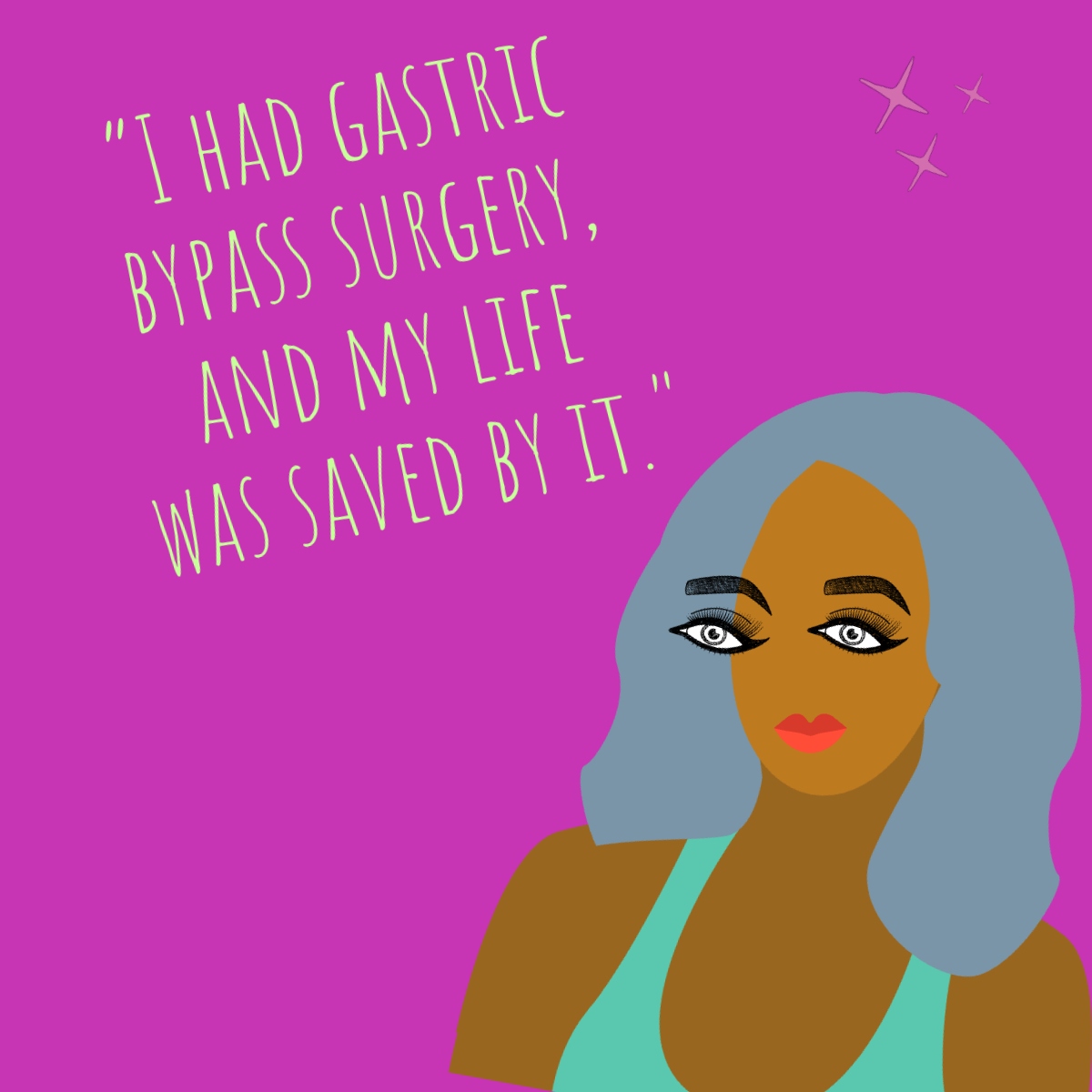
Earlier this week Project Runway Winner and Plus Size Fashion Designer, Ashley Nell Tipton announced on Facebook that she’s had gastric bypass surgery. The overwhelming amount of backlash she received from her ‘fans’ on Facebook forced her to to respond, “It’s My Body, It’s My Health, It’s My Choice.”
I was so shocked at how hateful and evil the comments were directed at her that I wanted to publicly express my support for her decision to improve her health.
 I’ve hosted many podcasts to tackling the topic of ‘shame and blame’ associated with body image, with the help of Poet Lorraine Brooks, and the enormously negative impact it often has on someone’s ability to manage their diabetes health.
I’ve hosted many podcasts to tackling the topic of ‘shame and blame’ associated with body image, with the help of Poet Lorraine Brooks, and the enormously negative impact it often has on someone’s ability to manage their diabetes health.
In a survey of over 5,000 people with type 1 and type 2 diabetes, the market research company dQ&A found that stigma affects a majority of patients’ view of their disease and approach to their management.
Lorraine and I have discussed numerous times the importance of self-acceptance is to managing your health.
Ashley made reference to her own journey of self-acceptance on FB, ” To accept oneself just the way you are is the first step. Not an easy step. Suffering through a lifetime of being made fun of, being looked and laughed at for how I appear was not easy.”
I’ve even dedicated an entire episode of Diabetes Late Nite on weight loss surgery options and diabetes with musical inspiration of Etta James. Etta James also underwent gastric bypass surgery and lost over 200 pounds.
 The response to Ashley’s announcement only reinforces how very little the general public truly understands about gastric bypass surgery.
The response to Ashley’s announcement only reinforces how very little the general public truly understands about gastric bypass surgery.
Gastric bypass surgery refers to a surgical procedure in which the stomach is divided into a small upper pouch and a much larger lower “remnant” pouch and then the small intestine is rearranged to connect to both.
Gastric bypass surgery often improves the symptoms of type 2 diabetes, even before patients start to lose weight. Why?
“What we found is that the secret for the cure of diabetes after gastric bypass lies in the intestine,” said Dr. Nicholas Stylopoulos, principal investigator at the Division of Endocrinology at Children’s Hospital Boston and Boston Medical School, in an interview with Healthline. “The key message is that after gastric bypass the intestine becomes the most important tissue for glucose use and this decreases blood sugar levels.”
According to People magazine, Tipton began working with a personal trainer two to four times a week, and meeting with a therapist to deal with her emotional issues. But nothing seemed to be helping and she wasn’t losing weight.

“I went to multiple doctors to make sure that I’m taking the right anti-depression medication, and make sure that my blood pressure’s okay,” she told People. “I found out that my blood pressure wasn’t okay and that I had a fatty liver. All these health risks were coming up. I was like, no wonder I’m not happy, because my body is working 10 times harder to try to be healthy.”
Tipton began discussing the option of having weight loss surgery with her therapist, and decided to meet with a surgeon for a consultation. After taking some initial measurements and running a few tests, the surgeon delivered some alarming news — her metabolism was not functioning.
“That really concerned me,” she says. “He explained to me how weight loss surgery can re-boost your metabolism and help you eat right. Weight loss surgery isn’t going to make you lose weight, it’s a tool to help you lose weight. Half of it is the surgery, and half of it is you eating what you’re supposed to eat and exercising.”

Although the criticism Ashley received is still mind boggling to me, Ashley’s powerful response is awe inspiring.
“When I realized that my personal power lies in by loving myself the way I am not the way others want me to be was life-changing. By loving myself the way I am allowed me to love myself enough to then change how I wanted to be. I want to be healthy. Not because you want me to look and be a certain way but because I want to! Getting this surgery is a personal decision. Choice I wanted to make for MY health, For my body and for My Life. Don’t you think it’s time we all respected people’s personal choices?,” she posted on FB.

LISTEN NOW: Diabetes Late inspired by Etta James. Guests include Poet Lorraine Brooks, the Charlie’s Angels of Outreach, Dr. Monique Renee Rolle DPM, Catherine Schuller AICI, CIP, Susan Greenberg Weiner MS, RDN, CDE, CDN, and Mama Rose Marie. Prize giveaways courtesy of Earth Brand Shoes, Dr. Greenfield’s Diabetic Foot Creams, Cabot Cheese and Nu Naturals.
Throughout the podcast we will be spotlighting Etta James’ iconic recordings from the “All The Way” and “The Essential Etta James” albums courtesy of SONY MUSIC.










